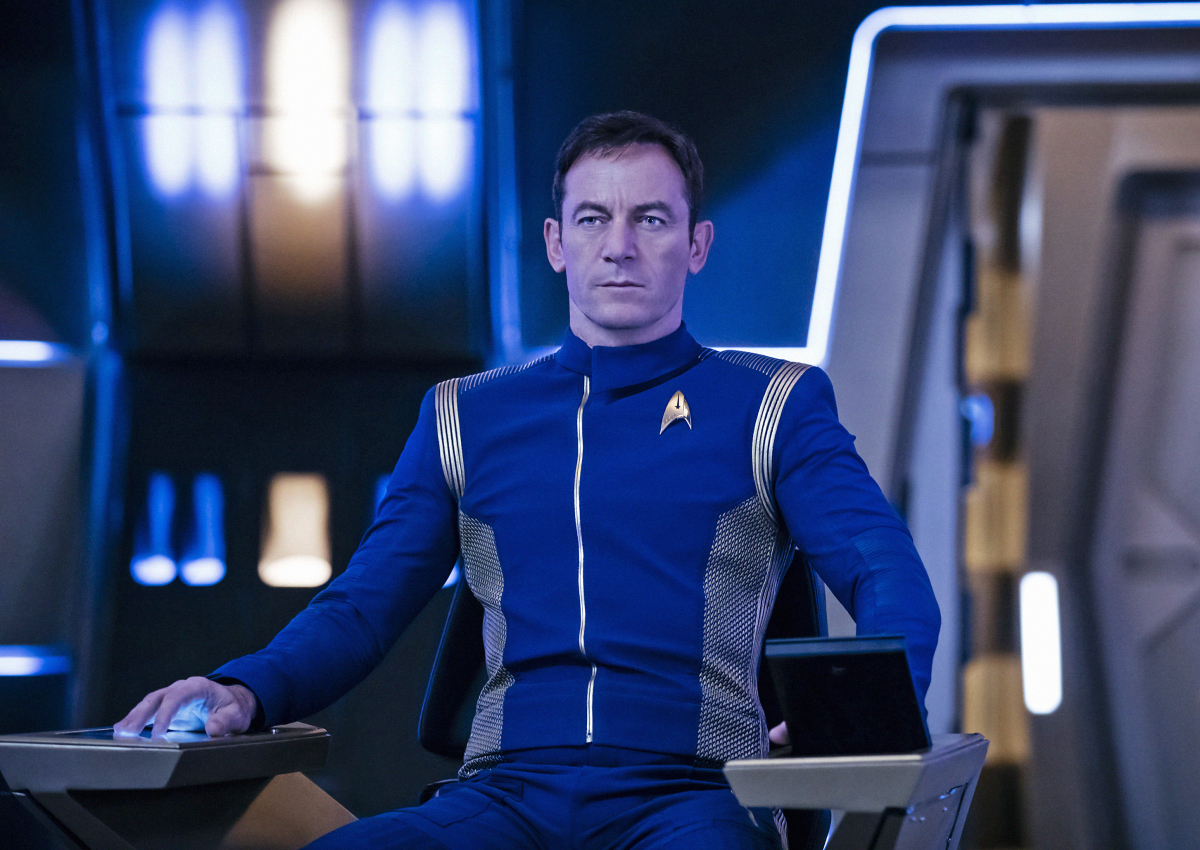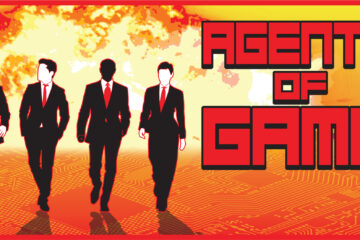By Matt Parker
Star Trek: Discovery (definitively not STD, apparently) starts today, the first new Star Trek on TV since Enterprise went off the air in 2005. It is much heralded and touted by CBS, who also brought some largely negative attention to it by the way they handled the Axanar issue. But whether for good or ill it is upon us, and a legion (horde? Fleet?) of Trekkies are ready to digest it.
I am one of the people waiting eagerly to see it, write about it, and even talk about it—right here on Agents of Game. But before the world gets to see the voyages of the starship Discovery, here are 3 things to think about; or at least that I am thinking about, as both a critic and a Trekkie.
Note that I am going in relatively blind to the show. I have purposefully avoided as many discussions of the actual plot of the show as I can, while knowing a great deal about the production (and even more about the legal battle mentioned above). So these items are spoiler free to the extent that I know nothing, but if there is a guess here that happens to be correct then you’ve been warned.
- I am tentatively excited.
This show has been a long time coming. It’s been 12 years since we last had Star Trek in its original format and timeline; and while I have enjoyed two of the three entries in the Kelvin (i.e. Abramsverse) timeline, I am looking forward to seeing Star Trek in the way that I grew up seeing it.
 Additionally, there are a lot of things going for this series. The top billed cast is made up of fantastic actors and actresses, reflecting the ‘Golden Age of TV’ that we are living in. Sonequa Martin-Green is someone I’ve seen peripherally but have enjoyed every time I’ve seen her, and Jason Isaacs and Michelle Yeoh are both phenomenal and respected actors who seem well chosen to enter the Star Trek canon.
Additionally, there are a lot of things going for this series. The top billed cast is made up of fantastic actors and actresses, reflecting the ‘Golden Age of TV’ that we are living in. Sonequa Martin-Green is someone I’ve seen peripherally but have enjoyed every time I’ve seen her, and Jason Isaacs and Michelle Yeoh are both phenomenal and respected actors who seem well chosen to enter the Star Trek canon.
And as mentioned above, we are living through a time of fantastic television across the board. TV looks better now than it has at any time in the past, and is often written more engagingly and acted more believably than ever. CBS knows it (being the number one network in both 2015 and 2016), and from the look of the trailers has chosen to try to make Discovery prestige television. While trailers can of course lie, it doesn’t seem like we will have to deal with many painted Styrofoam rocks in this new show.
- They are walking a lot of very fine lines.
 Discovery involves a lot of balancing acts, and its long term success is going to rely on navigating them well. The first is the most obvious one—the decision to put it on a relatively unknown and unused streaming service is the biggest stumbling block and could spell its failure. It needs to not only be good enough to justify its continued existence, but good enough that it acts as a draw to the streaming service it appears on. The fact that the rest of the world will be able to watch it on Netflix will help, as long as CBS takes those numbers into account, but a lot of fans are annoyed the new show is behind a pay wall. Quality, and only quality, can overcome that anger.
Discovery involves a lot of balancing acts, and its long term success is going to rely on navigating them well. The first is the most obvious one—the decision to put it on a relatively unknown and unused streaming service is the biggest stumbling block and could spell its failure. It needs to not only be good enough to justify its continued existence, but good enough that it acts as a draw to the streaming service it appears on. The fact that the rest of the world will be able to watch it on Netflix will help, as long as CBS takes those numbers into account, but a lot of fans are annoyed the new show is behind a pay wall. Quality, and only quality, can overcome that anger.
The other balancing act Discovery is going to have to deal with is the fact that it is once again a prequel. While we’ve gone 12 years since any Star Trek was last on television, we’ve gone a whopping 16 years since the last time we saw Star Trek that wasn’t a prequel (when Voyager ended). A lot of fans (including this one) were hoping that CBS’ new show would be set after the other series, instead of going back to the same eras plumbed by Enterprise, The Original Series, and the Kelvin timeline. Prequel fatigue is a real thing, and a lot of people are suffering from it.
Part of that fatigue is dealing with the fact that so much of the early years of Star Trek are already known to fans, and available through the internet to non-fans. Enterprise tried to walk this same line, often unsuccessfully; this lead to convoluted explanations of why the Klingons looked like they would in later centuries but not later decades, and why Captain Archer’s crew didn’t technically “see” the Romulans before they were first seen in The Original Series episode ‘Balance of Terror’. Discovery risks running in to the same tangles, a danger that all prequels suffer. I wouldn’t be surprised if there was some reference to the Klingons we see in Discovery being an off-shoot or collateral genetic branch, just adding to the snarl and potentially further frustrating fans.
Which means that again, if it isn’t good in a hurry it might not ever have a chance to be good.
- They don’t have much time to get going.
There is a downside to living in the aforementioned halcyon age of television: We don’t have a lot of patience for bad shows. In an era where there is a wealth of entertainment literally at our fingertips, we don’t tend to stick around when a show takes too long finding a rhythm. This is doubly true for risky shows like Science Fiction and fantasy offerings. Marvel might have cancelled The Inhumans before it even began, and it is a minor miracle that shows like Agents of SHIELD survived an uneven first season to find renewal.

This is not necessarily to Star Trek’s benefit. They have traditionally taken a little while to find their feet, to figure out how to strike the right balance of those essential elements that make up Star Trek. No one looks back on the first season of The Next Generation as a masterpiece, the first season of Deep Space Nine is much more ponderous and episodic compared to later seasons, and aside from my distaste for them both Voyager and Enterprise had trouble figuring out who they were in early seasons as well. Only The Original Series could be considered to have the same quality in the first season as in later seasons, and even then it definitely found its way as it went along in the second season. And we will just ignore the third season completely.
We no longer live in a world where these shows would get 3 (TOS), 4 (Enterprise), or 7 (TNG, DS9, and Voyager) seasons. Discovery needs to know what it is doing and where it is going from the starting line, or the numbers for the rest of the season could slump and it could claim the prize for shortest Star Trek series.
All this means that the pilot episode today had better be pretty darn good. It is the only episode available to everyone (as it airs on CBS, not their streaming service), which means it is the only episode that people have to try out before they decide if they want to pay for the privilege of watching. A lot rides on showing that this is a show that gets Star Trek and its legacy, is written and acted well, and is worth shelling out real money every month for.
In the end, there is not much we faithful Trekkies can do but wait until tonight’s premiere and see what happens. I for one will be watching, and I hope you will too. And you can follow all of the commentary and discussion here at Agents of Game.
What happens when you give someone from the legal department a field agent’s badge and website access? Let’s find out. Critic, RPG writer, and lawyer, Matt writes about all things pop culture that strike his fancy.





